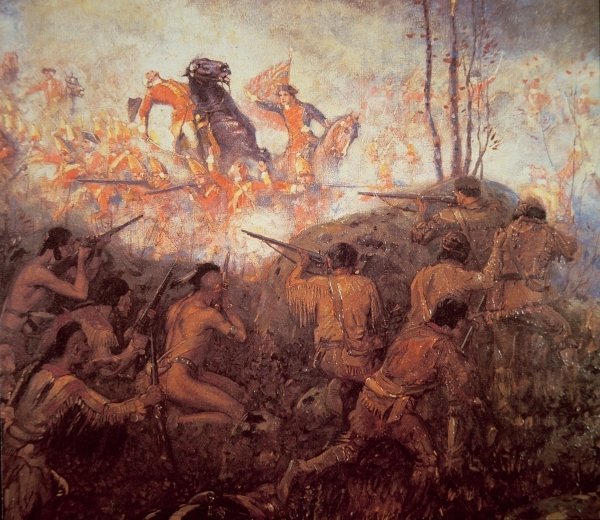
Additional Reading
An Excerpt: July 9, 1755 – The Battle
At about 2:30 p.m., George, still at Braddock’s side, was surprised to hear the unmistakable pops of muskets, followed a couple minutes later by the crash of mass-directed fire. The column shuddered to a halt, and Braddock immediately ordered messengers ahead to determine what was happening. Within a couple of minutes, he received confused reports from young officers indicating that the vanguard had run into French and Indian troops, with volleys erupting directly in front of Gage’s men and resulting in an indeterminate number of casualties.
An Excerpt: November 27, 1748 – Belvoir
Six months later, Lawrence and George left Mount Vernon, a modest one-and-a-half-story home flanked by two chimneys, painted white, and well sited overlooking the Potomac. The pair rode to an engagement party at Belvoir, the Fairfax family estate. It was a beautiful, clear, crisp Friday evening in late fall in northern Virginia. Will’s wedding was planned for late December, and the best of Virginia society were attending his engagement ball.
Was George Washington Religious?
The short answer: Yes . . . and No.
On paper, George Washington was a member of the Anglican Church. It would be a stretch to call him a deeply religious man. George and Martha went to church, but George often left early and his attendance was increasingly spotty as the years went on. Indeed, there is evidence that he rarely took communion.
George Washington, Dancing Machine
We think of George Washington as the old guy on the dollar bill. In fact, throughout his entire life, Washington was an active man who loved to dance.
Aren’t All Presidents Mama’s Boys?—Not Our Founding Father
Little Bill Clinton, Barack Obama and FDR were mama’s boys. Isn’t that a prerequisite to being president? The father of our country was the exception that proved the rule.
How George Washington’s Failure in Boston Saved the Revolution
In July 1775, George Washington was dispatched by the Second Continental Congress to lead the fledgling Revolutionary Army against the British occupying Boston. With the help of a brilliant Boston bookseller, Henry Knox, 60 cannons were dragged from Fort Ticonderoga and raised to the Dorchester Heights, forcing a British retreat and giving America its first victory of the Revolution. None of this would have happened if Washington’s first visit to Boston in February 1756 had not been spectacularly unsuccessful.